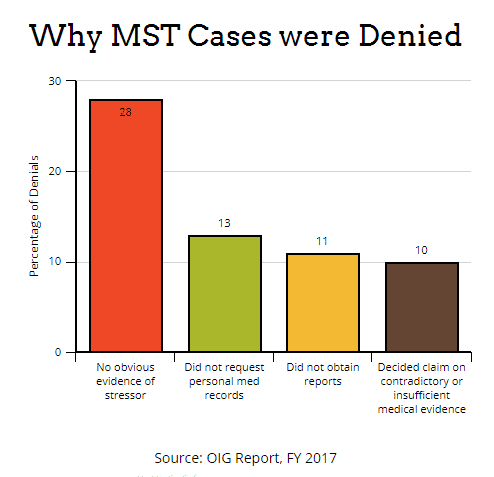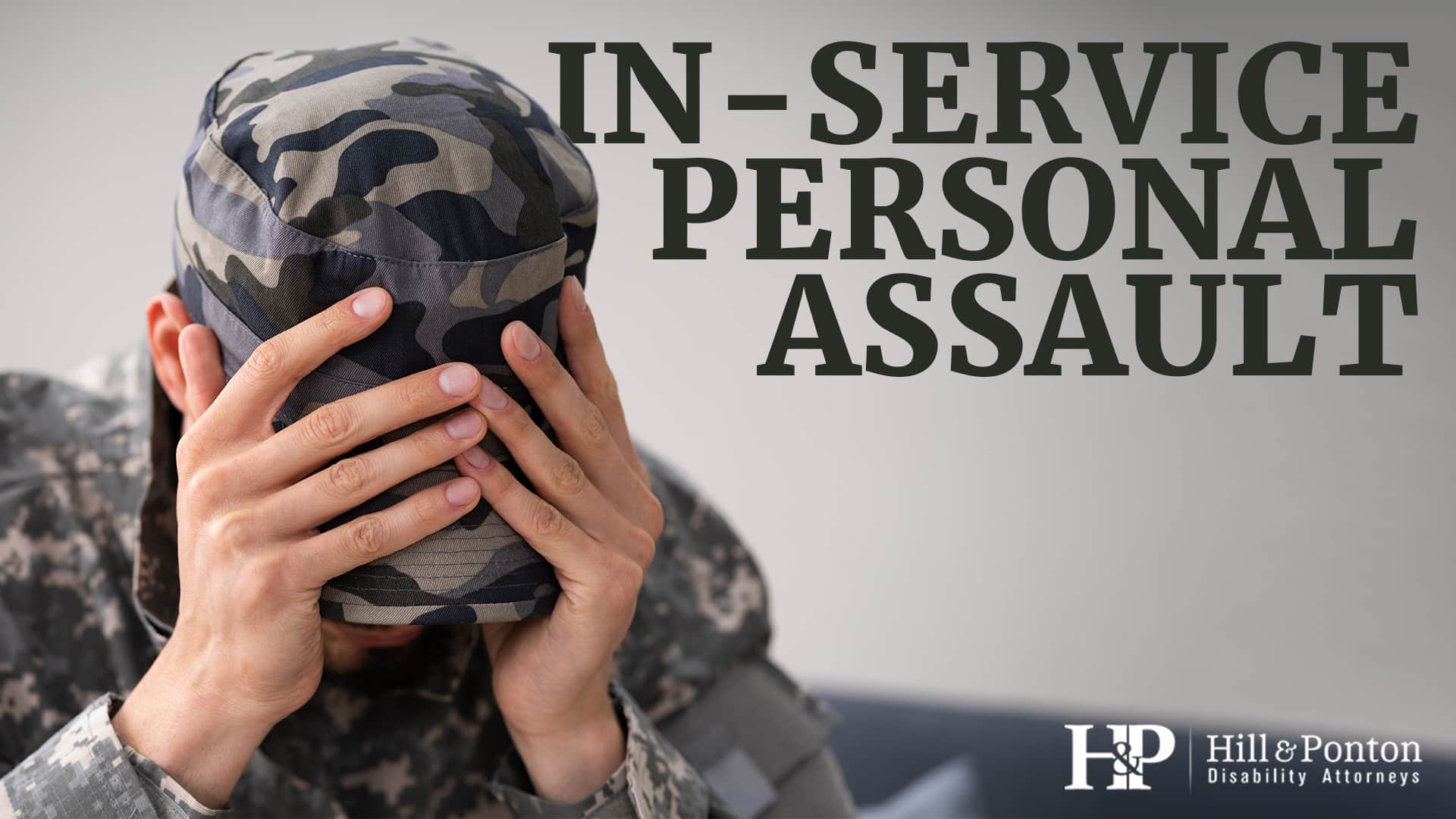Why Your MST Case May Have Been Denied Incorrectly
The VA has a duty to assist in claims and when it comes to a case of military sexual trauma (MST), there are different rules to carry out that duty to assist. The VA is mandated to review records with a more liberal hand to corroborate a case of MST, meaning they do not have to find hard evidence that it occurred, just evidence that can corroborate a trauma occurred.
The evidence in question involves such things as evidence of a stressor, behavioral changes, and outside records that can identify a possible stressor. The VA has a relaxed standard of evidence required for MST than other claims, understanding that many victims do not, or cannot, report the crime. Evidence that can be considered “markers” in a VA MST claim includes:
- Records from law enforcement, sexual assault centers, mental health counseling, hospitals, or physicians
- Pregnancy tests or tests for STDs
- Statements from family members, roommates, fellow Service members, clergy members, or counselors
- Requests for transfer to other duty stations
- Substance abuse
- Episodes of depression, panic attacks, or anxiety without identifiable causes
- Unexplained economic or social behavioral changes
- Relationship issues such as divorce
- Sexual dysfunction.
When a veteran files a claim for a condition related to MST, the VA is required to assign staff specially educated in identifying markers of trauma in a records review. Once the markers are identified, a medical exam is scheduled and the evidence is sent to the Regional office for review. However, this has not been the standard practice of the VA and, according to a recent report to the Office of the Inspector General, nearly half of the MST cases are not being handled properly resulting in not only denials of valid claims, but increased traumatization and stress of the victims.

What Happened?
The VA can only deny a medical exam in these cases if there is no evidence of a stressor, no evidence of a behavioral marker, or no evidence of a mental disorder. The VA did not use experienced staff to review medical and personnel records of claimants, missing the above criteria, so many claims were denied without calling for a medical exam. In FY 2017, this equated to about 5,500 claims, or 46% of all MST claims filed.
This first mistake caused undue stress for MST victims already suffering from PTSD, anxiety disorders, or any number of mental health conditions, let alone any physical conditions that may have been related to their attack. Many of these claimants also cannot work due to the residuals of their attacks and have just lost valuable time gaining access to much needed financial assistance in paying for things like rent and electric and food. If not service connected, they may also be piling up medical bills or, it not getting treatment, getting closer and closer to hospitalization or even potential suicide.

When the OIG went back to review the claims denied, the following was found:
- Evidence was found that was sufficient to call for a medical exam but the staff did not call for one in 28% of cases;
- Evidence-gathering issues were inadequate such as not requesting personal medical records in 13% of cases;
- MST Coordinators did not call veterans or use language in letters sent to veterans to determine whether the incident was reported in service or attempt to obtain a copy of the report in 11% of cases;
- Reviewers decided veterans’ claims based on contradictory or otherwise insufficient medical opinions in 10% of cases.
The OIG is recommending changes to the process to ensure that these issues are corrected, including a review of all past denied MST-related claims from 2017.
Why MST Cases Get Denied Often
MST is difficult to process because most victims do not want anyone to know they were assaulted. In the military, even in the 21st century, there is still a stigma and whether the DoD wants to believe it or not, people lose their careers over reporting, especially if their perpetrator is senior to themselves or someone who has influence. The military does not do as good of a job dealing with sexual assault as they like to pat themselves on the back for. If they did, there would be many more reports in veterans’ service records of MST being reported to officials than there are.
In a recent report, we just learned how the VA spent over $24,000,000 in FY 2017 in unnecessary C&P exams and yet, in the same fiscal year, they are denying needed exams and denying claims leading to an increased mental health crisis among our most vulnerable populations of veterans.
Service members are not only afraid for their careers if they report the assault, but they are also afraid of the residuals from not only the attack such as continued harassment, getting their careers sidelined, or getting poor details; also the residuals of the mental health trauma attached to the assault. Going to mental health clinics for assistance in dealing with trauma, be it counseling or medication treatment, can also lead to a call for “unfit for duty” and an end to someone’s career, for something that was perpetrated by another person. From the victims’ point of view, it is unfair that their life be ruined because someone else did something so wrong. Yet the DoD has made no moves to correct this imbalance of power perpetrators have in a substantial manner.
Act Now
If you were denied a claim for PTSD due to MST, please contact us to review your case and see if there were mistakes made on your claim by the VA. We can help with your appeal and help so that your life becomes your own again.


